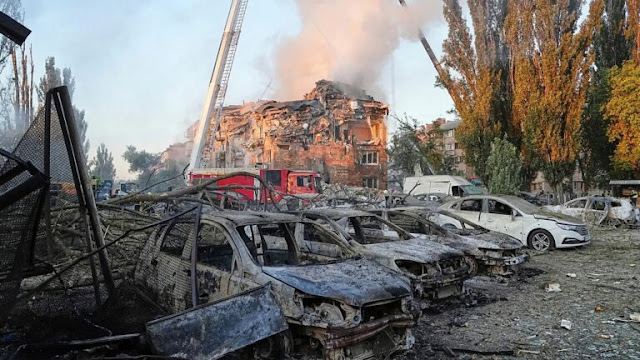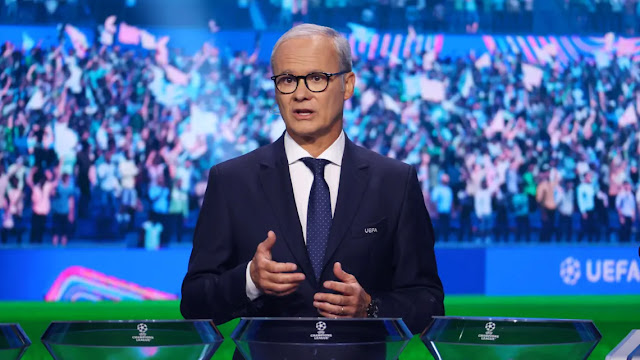On the night of August 27, 2025, Russian airstrikes struck the Ukrainian capital of Kyiv, hitting multiple structures, including the European Union delegation building, in a devastating assault that left at least eight people dead and dozens injured. Ukrainian Deputy Foreign Minister Andrii Sybiha condemned the attack as a deliberate targeting of diplomatic missions, labeling it a violation of the Vienna Convention and calling for a robust international response. EU Enlargement Commissioner Marta Kos echoed the outrage, describing the strikes as evidence of Russia’s preference for terror over peace. The assault, which involved drones, cruise missiles, ballistic missiles, and advanced Kinzhal hypersonic missiles, comes at a critical juncture as Ukraine, now in its fourth year of resisting Russia’s full-scale invasion, intensifies its pursuit of European Union membership. This article provides a comprehensive analysis of the airstrikes, their diplomatic and humanitarian impact, the broader context of the Russia-Ukraine conflict, and the implications for Ukraine’s integration with the West and regional stability.
The Airstrikes: A Devastating Assault on Kyiv
The overnight airstrikes on Kyiv, commencing late on August 27, 2025, marked one of the most significant escalations in Russia’s ongoing military campaign against Ukraine. The European Union delegation building, a symbol of Ukraine’s deepening ties with the West, was among the structures hit, alongside other civilian and military targets across the capital. The attack caused widespread destruction, with reports of collapsed buildings, shattered windows, and disrupted infrastructure in central Kyiv, a city that has endured repeated assaults since Russia’s invasion began in February 2022.
Ukrainian President Volodymyr Zelensky confirmed that the strikes resulted in at least eight deaths and dozens of injuries, though independent reports, including those from the Britain-based Ukrainian Observatory for Human Rights, estimated a higher death toll of at least 10. The use of a sophisticated arsenal, including drones, cruise missiles, ballistic missiles, and Russia’s advanced Kinzhal hypersonic missiles, underscored the intensity of the assault. The Kinzhal, capable of traveling at speeds up to 10 times the speed of sound, is designed to evade air defenses, making it a particularly destructive weapon in Russia’s arsenal.
The targeting of the EU delegation building was a focal point of international concern. The building, located in Kyiv’s diplomatic quarter, serves as the headquarters for the EU’s diplomatic mission in Ukraine, coordinating aid, policy dialogue, and support for Ukraine’s EU membership aspirations. Damage to the structure, though not fully detailed in initial reports, symbolized an attack not only on Ukraine but also on the broader European project, amplifying calls for a unified response.
Eyewitness accounts described scenes of chaos, with air raid sirens blaring through the night and residents seeking shelter in metro stations and basements. The strikes disrupted power and water supplies in parts of Kyiv, compounding the humanitarian toll. Emergency services worked through the night to rescue survivors and clear debris, while Ukrainian air defenses, bolstered by Western-supplied systems like the Patriot missile defense, managed to intercept some of the incoming projectiles but were unable to prevent significant damage.
Ukrainian and EU Reactions: Condemnation and Solidarity
The Ukrainian government swiftly condemned the airstrikes, with Deputy Foreign Minister Andrii Sybiha accusing Russia of deliberately targeting diplomatic missions in violation of international law. “This attack on the EU delegation building is a blatant breach of the Vienna Convention, which guarantees the inviolability of diplomatic premises,” Sybiha said in a statement. He called on the international community to issue a strong condemnation, emphasizing that Russia’s actions were an assault on the principles of diplomacy and sovereignty. Sybiha also expressed solidarity with EU partners, reaffirming Ukraine’s commitment to its European integration despite the violence.
EU Enlargement Commissioner Marta Kos, responsible for overseeing Ukraine’s path toward EU membership, issued a scathing denunciation of the strikes. “Russia’s attack on Kyiv, including the EU delegation, is a clear rejection of peace in favor of terror,” she said. Kos highlighted the EU’s unwavering support for Ukraine, noting that the attack would only strengthen Europe’s resolve to provide military, financial, and humanitarian aid. She also called for increased sanctions on Russia and accelerated support for Ukraine’s defense capabilities.
President Zelensky, addressing the nation on August 28, described the strikes as a continuation of Russia’s “genocidal” campaign against Ukraine. He reiterated calls for more advanced air defense systems and long-range weapons to counter Russia’s escalating attacks. “Every missile that hits Kyiv is a reminder of why we fight and why we need the world’s support,” Zelensky said, linking the assault to Ukraine’s broader struggle for sovereignty and European integration.
The targeting of the EU delegation building sparked outrage across Europe, with leaders from France, Germany, and Poland issuing statements of condemnation. The EU’s High Representative for Foreign Affairs, Kaja Kallas, announced plans to convene an emergency meeting of EU foreign ministers to discuss the attack and coordinate a response. The incident also prompted renewed calls for accountability, with some EU officials advocating for Russia to face further scrutiny at the United Nations and other international forums.
Context: The Russia-Ukraine War and EU Membership
The airstrikes occur against the backdrop of Russia’s ongoing invasion of Ukraine, which began on February 24, 2022, and has entered its fourth year. The conflict, the largest land war in Europe since World War II, has resulted in tens of thousands of deaths, millions of displaced people, and widespread destruction across Ukraine. Russia’s strategy has increasingly focused on targeting civilian infrastructure, including schools, hospitals, and energy facilities, in an effort to weaken Ukrainian resolve and disrupt daily life.
Kyiv, as Ukraine’s political and cultural heart, has been a frequent target, with Russian forces launching missile and drone attacks to undermine the government and terrorize civilians. The targeting of the EU delegation building is particularly significant, given Ukraine’s pursuit of EU membership, which has become a central pillar of its resistance to Russian aggression. In June 2022, the EU granted Ukraine candidate status, and negotiations for accession began in 2024, marking a historic step toward integration with the 27-member bloc.
Ukraine’s EU aspirations are both a strategic and symbolic goal. Membership would provide economic benefits, strengthen democratic institutions, and align Ukraine with Western security structures, countering Russia’s influence. However, the process is complex, requiring reforms in areas like governance, anti-corruption, and judicial independence. Russia’s attacks on Kyiv, particularly on symbols of European partnership like the EU delegation building, are widely seen as an attempt to disrupt this trajectory and signal Moscow’s opposition to Ukraine’s westward pivot.
The Vienna Convention, cited by Sybiha, is a cornerstone of international diplomacy, guaranteeing the protection of diplomatic premises and personnel. Russia’s alleged targeting of the EU delegation building is not the first instance of such violations—previous attacks have damaged embassies and consular offices in Ukraine—but it underscores Moscow’s disregard for international norms. This has fueled calls for stronger measures, including expelling Russian diplomats from Western capitals and increasing military aid to Ukraine.
Humanitarian and Diplomatic Impact
The humanitarian toll of the airstrikes was immediate and severe. Zelensky’s confirmation of at least eight deaths and dozens of injuries, coupled with independent reports suggesting a higher toll, highlights the human cost of Russia’s campaign. The targeting of central Kyiv, a densely populated area, increased the risk of civilian casualties, with hospitals and emergency services stretched thin. The disruption of power and water supplies further compounded the crisis, particularly as Ukraine approaches winter, when energy shortages are a critical concern.
The attack on the EU delegation building has significant diplomatic ramifications. The building, while primarily an administrative hub, symbolizes the EU’s commitment to Ukraine’s sovereignty and integration. Damage to the structure, even if limited, sends a provocative message to the EU and its member states, many of which have provided billions of euros in aid since 2022. The incident is likely to galvanize EU support, with calls for increased military assistance, including air defense systems and fighter jets, gaining momentum.
The broader international community has also reacted with alarm. The United States, a key ally of Ukraine, condemned the strikes and pledged additional support, with the Biden administration announcing a new $800 million aid package on August 28. NATO Secretary-General Jens Stoltenberg described the attack as “reckless,” reaffirming the alliance’s commitment to Ukraine’s defense. Countries in the Global South, however, have been more reserved, with some, like India and South Africa, calling for restraint to avoid further escalation.
Geopolitical Implications
The airstrikes have far-reaching implications for the Russia-Ukraine conflict and global geopolitics:
Ukraine’s EU Membership:
The attack on the EU delegation building is likely to accelerate Ukraine’s integration with the EU, as it underscores the stakes of the conflict. EU leaders may expedite accession talks or provide additional financial and military support to bolster Ukraine’s resilience.
Russia’s Strategy:
Russia’s use of advanced weaponry, including Kinzhal missiles, signals its intent to maintain military pressure on Ukraine despite economic sanctions and battlefield setbacks. The targeting of diplomatic sites suggests a willingness to escalate provocations, potentially to deter Western support.
Western Response:
The EU and NATO are likely to respond with increased aid, including air defense systems and long-range missiles. The attack may also prompt stronger sanctions on Russia’s energy and financial sectors, though these face challenges due to global energy demands.
Regional Stability:
The strikes risk destabilizing the broader region, particularly as Russia’s actions provoke fear in neighboring countries like Poland and the Baltic states. NATO’s increased presence in Eastern Europe, including troop deployments and joint exercises, may intensify in response.
International Law:
The violation of the Vienna Convention raises questions about accountability. While Russia’s veto power at the UN Security Council limits formal action, international courts like the International Criminal Court (ICC) may investigate the strikes as part of broader war crimes probes.
Challenges and Opportunities
The airstrikes present significant challenges and opportunities for Ukraine and its allies:
Challenges:
Humanitarian Crisis: The loss of life and infrastructure damage exacerbate Ukraine’s humanitarian challenges, particularly as winter looms. Ensuring adequate aid and energy supplies is critical.
Diplomatic Escalation: The targeting of the EU delegation building complicates diplomatic efforts to negotiate a ceasefire, as Russia’s actions signal a rejection of dialogue.
Military Strain: Ukraine’s air defenses, while effective, are stretched thin, requiring urgent Western support to counter Russia’s advanced weaponry.
Opportunities:
Strengthened EU Support: The attack may galvanize EU member states to accelerate Ukraine’s membership process and increase aid, reinforcing Kyiv’s strategic alignment with the West.
Global Solidarity: The international outrage could lead to broader coalitions supporting Ukraine, including from non-Western countries, enhancing its diplomatic leverage.
Military Advancements: Increased Western aid could bolster Ukraine’s defense capabilities, potentially shifting the battlefield dynamics in its favor.
Conclusion
The Russian airstrikes on Kyiv on August 27, 2025, targeting the EU delegation building and other sites, represent a significant escalation in the ongoing Russia-Ukraine war. The attack, which killed at least eight people and injured dozens, has been condemned as a violation of international law, prompting calls for a unified global response. Ukrainian leaders, including President Zelensky and Deputy Foreign Minister Sybiha, have framed the strikes as an assault on Ukraine’s sovereignty and its European aspirations, while EU officials like Marta Kos have denounced Russia’s tactics as terror.
As Ukraine continues its fight for survival and integration with the EU, the airstrikes underscore the high stakes of the conflict. The targeting of a diplomatic site signals Russia’s willingness to escalate provocations, challenging the post-World War II international order. For the EU and its allies, the incident is a call to action, reinforcing the need for increased support to Ukraine. As the war enters its fourth year, the path to peace remains uncertain, but Ukraine’s resilience and global solidarity offer hope for a future aligned with democratic values and European unity.






